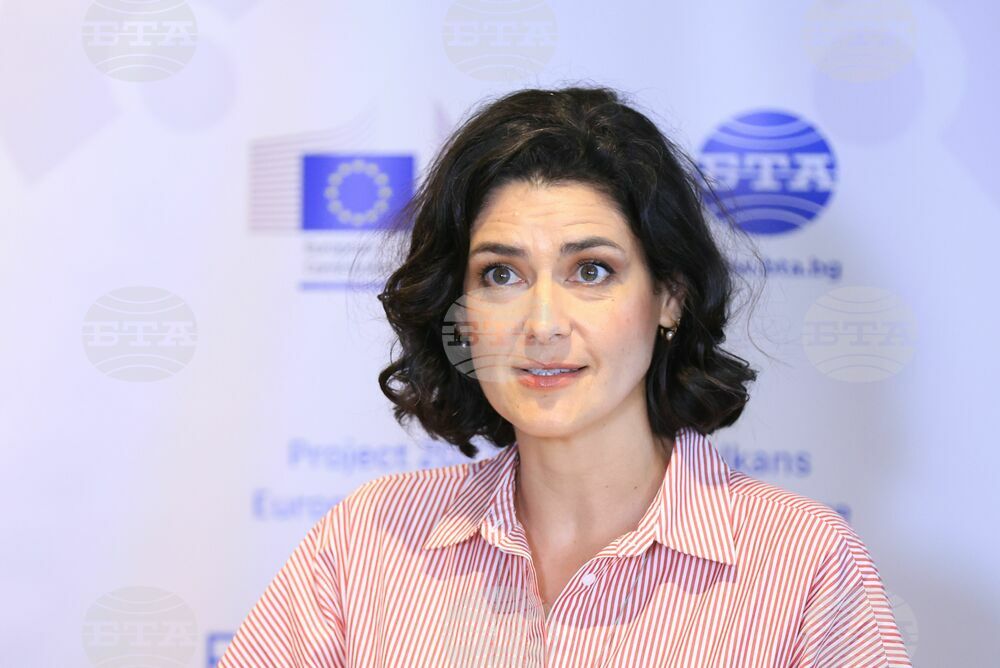site.btaMore Than A Third of EU Citizens in Border Regions Have Benefited From Cross-border Programmes Since 1990, Says Deputy Head of EU Delegation to Serbia


EU cohesion policies are particularly important for less developed EU regions and therefore remain one of the EU's key priorities, said Plamena Halacheva, deputy head of the European Union Delegation to the Republic of Serbia. He was among the speakers at the sixth cross-border conference on the project "Europe in the Balkans: A Common Future" in Belgrade on Friday.
Halacheva pointed out that almost a third of the EU budget is allocated precisely to cohesion policies, and that has been that way for almost 40 years. People often say that the Balkans are an essential part of Europe, but in her opinion, not enough is said about how to bring more Europe to the Balkans. "Territorial, social, economic cohesion is a promise that all Europeans are equal, that all European regions can offer the same opportunities to all citizens, that all member states can flourish in the market. And that Europe acts with solidarity", she stressed.
According to Halacheva promises are only significant if they are fulfilled. She said that over the past two decades, the GDP of the ten member states that joined in 2004 has grown from 52% to almost 80%. The unemployment rate has dropped from 13% to just 4%. "This is proof that the EU is working to fulfil its promises", she noted, adding that the efforts will not stop there.
She emphasised that a key component of cohesion policies are cross-border programmes that support territorial cohesion, as well as actions at the regional and local level, which aim to build solidarity and trust. She recalled that there are over 100 cross-border programmes that promote the sustainable development of EU border regions.
Since 1990, more than a third of EU citizens from border regions have benefited from these programmes, said Halacheva. "By encouraging local authorities, stakeholders and citizens to share resources, knowledge and skills with neighbouring countries and regions, they transform local challenges into opportunities", she noted.
According to Halacheva, Serbian citizens also benefit from cohesion policies and Serbia should soon start managing pre-accession funds using methods very close to those introduced by EU countries, adding that the country should promote regional development and recalling that in April 2024, the Council and the European Parliament agreed to provide additional aid for the regional social economy of Serbia in the amount of EUR 6 billion.
The BTA project "Europe in the Balkans: A Common Future" is supported by the European Commission. It aims to foster a better understanding of the role of cohesion policy in the Balkans; to raise awareness of projects funded by the EU through the Cohesion Funds; promote dialogue on the results of the projects at local level and boost civic participation in issues related to cohesion policy.
The project is funded with EUR 348,871. To achieve the project's aims, BTA is using a media mix and expects to reach out to between 700,000 and 1 million people in Bulgaria, Romania, Serbia, North Macedonia, Greece and Turkiye.
The series of conferences under the project was launched on December 20, 2023 in Sofia. The programme until August 2024 envisages BTA-hosted discussions in the cities of Blagoevgrad, Burgas, Varna, Vidin, Vratsa, Gabrovo, Dobrich, Kazanlak, Kardzhali, Kyustendil, Lovech, Montana, Pazardzhik, Pernik, Pleven, Plovdiv, Razgrad, Samokov, Silistra, Sliven, Smolyan, Sofia, Stara Zagora, Targovishte, Haskovo, Shumen, Yambol, Kardzhali and Haskovo, as well as cross-border conferences in Belgrade, Bosilegrad, Bucharest, Edirne, Skopje and Thessaloniki.
/NF/
news.modal.header
news.modal.text